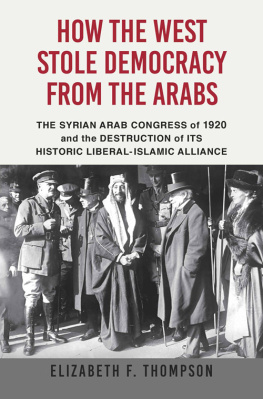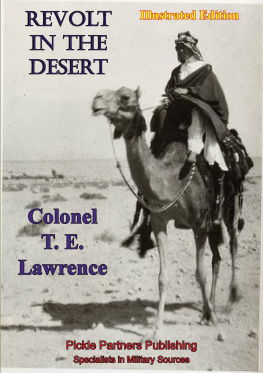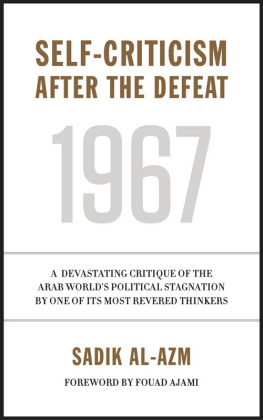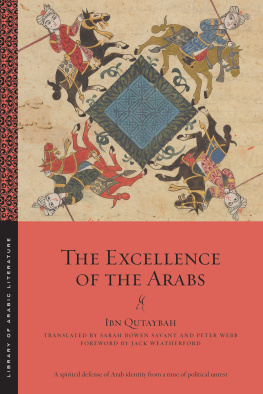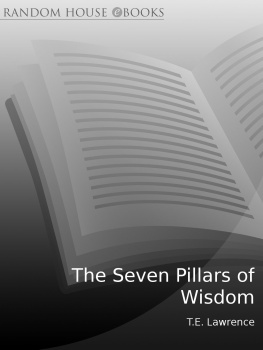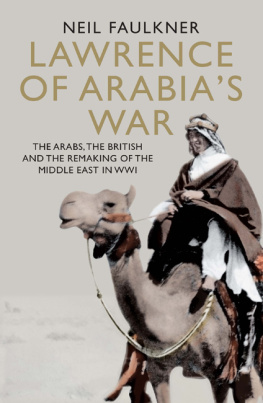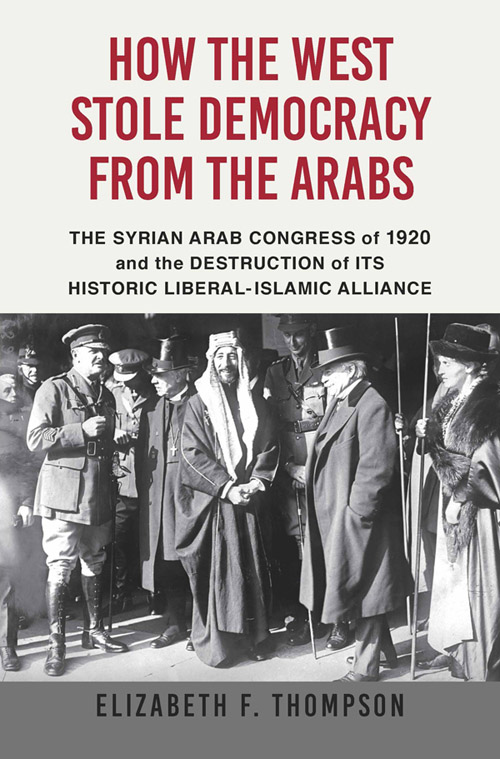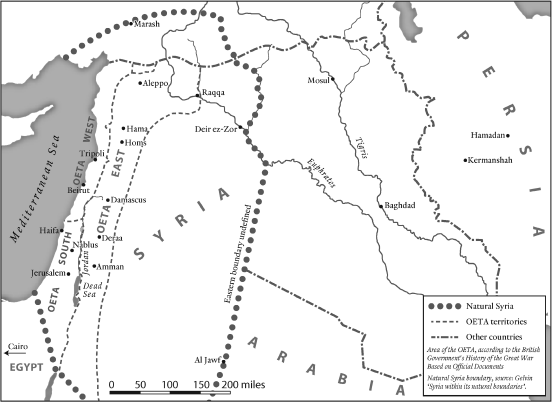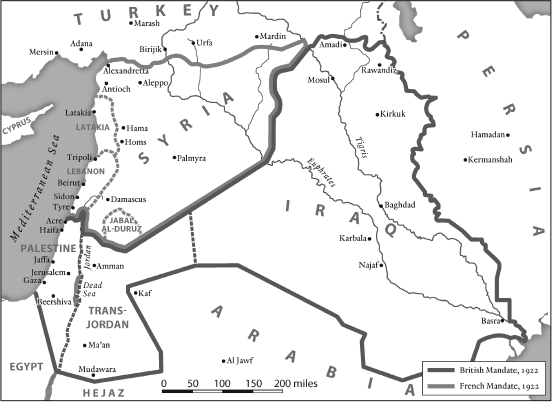Elizabeth F. Thompson - How the West Stole Democracy from the Arabs: The Destruction of the Syrian Arab Kingdom in 1920 and the Rise of Anti-Liberal Islamism
Here you can read online Elizabeth F. Thompson - How the West Stole Democracy from the Arabs: The Destruction of the Syrian Arab Kingdom in 1920 and the Rise of Anti-Liberal Islamism full text of the book (entire story) in english for free. Download pdf and epub, get meaning, cover and reviews about this ebook. year: 2020, publisher: Grove Atlantic, genre: Science / Politics. Description of the work, (preface) as well as reviews are available. Best literature library LitArk.com created for fans of good reading and offers a wide selection of genres:
Romance novel
Science fiction
Adventure
Detective
Science
History
Home and family
Prose
Art
Politics
Computer
Non-fiction
Religion
Business
Children
Humor
Choose a favorite category and find really read worthwhile books. Enjoy immersion in the world of imagination, feel the emotions of the characters or learn something new for yourself, make an fascinating discovery.
- Book:How the West Stole Democracy from the Arabs: The Destruction of the Syrian Arab Kingdom in 1920 and the Rise of Anti-Liberal Islamism
- Author:
- Publisher:Grove Atlantic
- Genre:
- Year:2020
- Rating:4 / 5
- Favourites:Add to favourites
- Your mark:
How the West Stole Democracy from the Arabs: The Destruction of the Syrian Arab Kingdom in 1920 and the Rise of Anti-Liberal Islamism: summary, description and annotation
We offer to read an annotation, description, summary or preface (depends on what the author of the book "How the West Stole Democracy from the Arabs: The Destruction of the Syrian Arab Kingdom in 1920 and the Rise of Anti-Liberal Islamism" wrote himself). If you haven't found the necessary information about the book — write in the comments, we will try to find it.
At the Paris Peace Conference, Faisal won the support of President Woodrow Wilson, who sent an American commission to Syria to survey the political aspirations of its people. However, other Entente leaders at Parisand later San Remoschemed against the Arab democracy, which they saw as a threat to their colonial rule. On March 8, 1920, the Syrian-Arab Congress declared independence and crowned Faisal king of a representative monarchy. Rashid Rida, a leading Islamic thinker of the day, led the constituent assembly to establish equality for all citizens, including non-Muslims, under a full bill of rights.
But France and Britain refused to recognize the Damascus government and instead imposed a system of mandates on the Arab provinces of the defeated Ottoman Empire, on the pretext that Arabs were not yet ready for self-government. Under such a mandate, the French invaded Syria in April 1920, crushing the Arab government and sending Faisal and Congress leaders in flight to exile. The fragile coalition of secular modernizers and Islamic reformers that might have established democracy in the Arab world was destroyed, with profound consequences that reverberate still.
Using many previously untapped primary sources, including contemporary newspaper accounts and letters, minutes from the Syrian-Arab Congress, and diary and journal entries from participants, How The West Stole Democracy From The Arabs is a groundbreaking account of this extraordinary, brief moment of unity and hopeand of its destruction.
Elizabeth F. Thompson: author's other books
Who wrote How the West Stole Democracy from the Arabs: The Destruction of the Syrian Arab Kingdom in 1920 and the Rise of Anti-Liberal Islamism? Find out the surname, the name of the author of the book and a list of all author's works by series.

